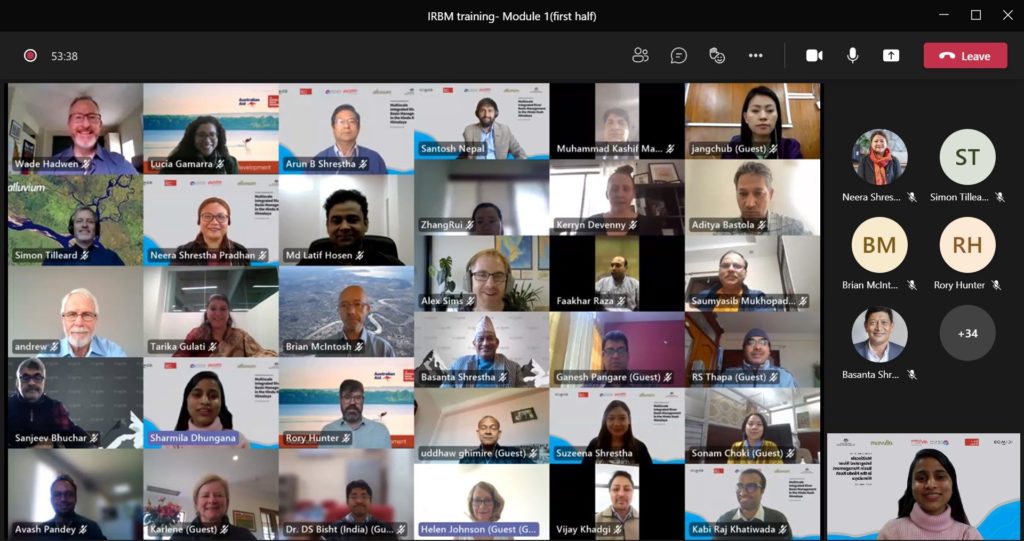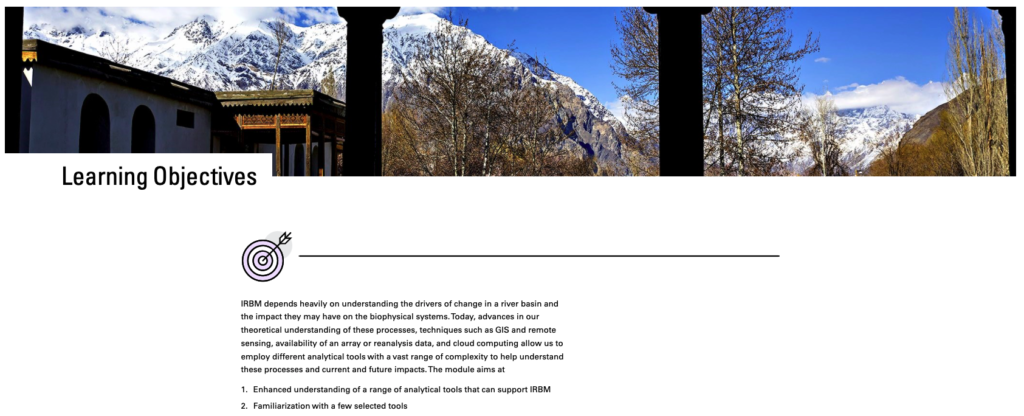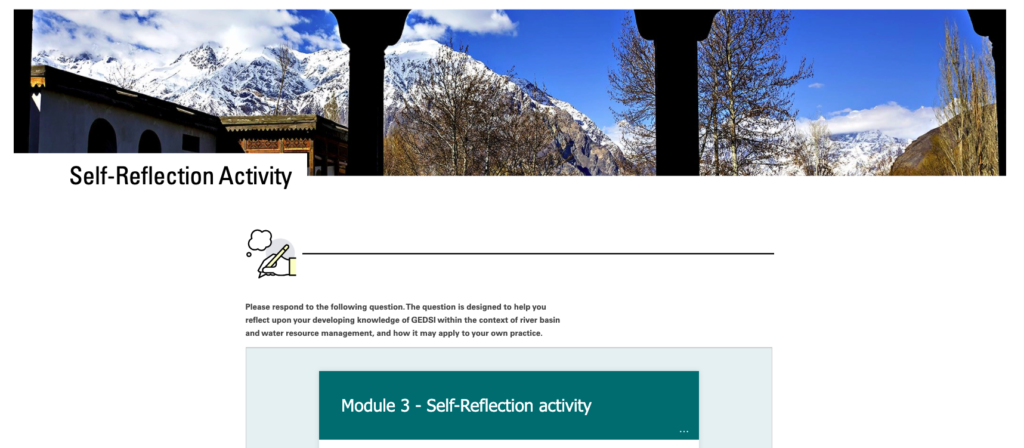
- Research project
- – Western Pacific
From 12–25 November, a training program on Integrated River Basin Management (IRBM) was co-delivered by the International Centre for Integrated Mountain Development (ICIMOD) and a consortium of Australian Partners including Alluvium, Griffith University’s International WaterCentre, and independent consultants (Helen Johnson, Ganesh Pangare, Andrew Johnson, Karlene Maywald, and Adrian Volders).
The Hindu Kush Himalayas (HKH) spans 3,500km across eight countries—Afghanistan, Bangladesh, Bhutan, China, India, Myanmar, Nepal, and Pakistan—and is the source of ten of Asia’s largest rivers as well as the largest volume of ice and snow outside of the Arctic and Antarctica. Together these rivers support the drinking water, irrigation, energy, industry, and sanitation needs of two billion people.

In the Himalayan context, where issues and related implications are interconnected across micro to macro scales, multiscale IRBM can facilitate participatory planning and implementation processes that bring stakeholders together to make collective decisions—especially in terms of benefit and risk sharing related to water resource management decisions.
Supported by the Australian Water Partnership, the training aims to increase the awareness of all participants of the concepts and practical application of multiscale IRBM and engage them in learning through discussion and activities with counterparts from across the HKH region. It also explores the opportunities for IRBM and multidisciplinary planning across the diverse HKH region.
The Australian team worked alongside ICIMOD through their River Basin and Cryosphere Program to co-design the training and update their existing IRBM resource book and training modules.
“The module teams have worked together to bring in both Australian and international perspectives, building on the pre-existing training content and experience from ICIMOD”, said Dr Wade Hadwen, the training lead and lecturer in Ecology and Integrated Water Management at the School of Environment and Science at Griffith University.
Experts from ICIMOD and Australia have delivered seven modules that bring together theoretical and applied real-world examples in areas of water governance and institutional frameworks; water diplomacy; regional cooperation; socioeconomic drivers; gender equality, disability, and social inclusion (GEDSI); and operational aspects of water resources management.

The specific GEDSI module examines the legislative, policy and human rights frameworks for equality and inclusion, explains what GEDSI is, why it is required, and how it is incorporated within IRBM.
“It is beneficial to see the ways in which the IRBM Training course has recognised the need for and value of including gender equality, disability and social inclusion into its design and delivery. The spotlight on these issues is of exceptional benefit as the water sector moves towards an appreciation of the value of GEDSI-transformative projects,” said Prof Helen Johnson, GEDSI specialist and co-trainer of the IRBM training workshop.
Acknowledging the complex intersections of social inequality in IRBM, across a range of different countries in the Himalayas, the course significantly addresses the need for GEDSI as countries work with the challenges of natural disasters and grasp opportunities arising from adapting to and mitigating climate change.
Frequent online exchanges (every two months) will be facilitated to explore barriers and opportunities to further develop participants’ capacity and leadership skills to enable the IRBM concepts to become embedded in their roles within their organisations.
“The success of this online training will mean that we’ll be more confident in the future to have it regularly. We usually do in-person events, this experience tells us that this can be done virtually. Even in normal conditions we could think of a hybrid event format in the future,” said Arun B Shrestha, Regional Programme Manager of ICIMOD’s River Basins and Cryosphere Program.

The IWC worked alongside Griffith University’s Professional Learning Hub, the university’s platform for professional learning and executive education. The PL Hub works with academics, schools and centres across Griffith to deliver bespoke learning to industry. The IRBM training package was built using Microsoft Sway, a presentation tool that comes as part of the Microsoft Office family of tools which allows rapid response course building for clients and ease of use for the participants. Sway has been a very useful tool in providing rapid response course building for clients and ease of use for the participants. If you’d like to learn more about the Professional Learning Hub – visit their LinkedIn page.

In April 2019, a Memorandum of Understanding was signed between the Australian Water Partnership, ICIMOD and the Department of Foreign Affairs and Trade to strengthen bilateral water cooperation between Australia and countries of the HKH. This IRBM training program is the second AWP activity to be implemented under this partnership with first one being the River Basin Governance and Cooperation in the HKH region.
This blog post was first published on the AWP website.